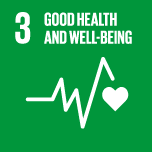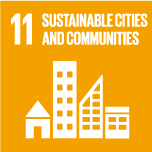Implementation and Effectiveness Verification of Risk-based Control Approaches for Lead Contaminated Environment and Lead Poisoning in Zambian Mining District
| Principal Investigator (Affiliation) |
|
|---|---|
| Co-investigator |
|
| Research Participant |
|
| International Coordinator |
|
| Research Institutions in Japan | Hokkaido University |
| Cooperating Organization in Japan | Mitsubishi Materials Techno Co. / Japan Space Systems |
| Partner Country | Republic of Zambia  |
| Research Institutions in Zambia | |
| Cooperating Organization in Zambia | University of Zambia, Ministry of Higher Education / Ministry of Health / Ministry of Mines and Minerals Development / Zambia Environmental Management Agency |
| Support Organization | |
| General Description of the Research Project | This study targets lead (Pb) contamination in the Kabwe mining area in the Republic of Zambia. In the preceding SATREPS project, we have developed new methods for assessing the health and socio-economic impacts of environmental pollution and on-demand environmental remediation. In this study, the following three groups will practice these methods on a risk basis. 1) long-term ecosystem restoration and soil conservation, improved edible plant growth, large-scale deployment of an online weather data management system, and establishment of a green park; 2) prospective cohort studies and clinical symptom assessments, and economic rationale and justification for treatment and environmental remediation; 3) assessment of the impact of surrounding residential areas by estimating Pb diffusion routes from mine dump sites, and proposing economically rational remediation methods, as well as deployment of environmental remediation in collaboration with the World Bank project. We aim to make the project self-sustaining after the research period and to solve the environmental pollution issue by promoting cooperation with local administrative agencies and utilizing the laboratory at the University of Zambia. |
| Links | Laboratory of Toxicology, Faculty of Veterinary Medicine, Hokkaido University The Uchida Lab Hokkaido University SATREPS Project JICA ODA見える化サイト |
| Project Updates | (2021/3/8) DRINK+progress+2020 |






